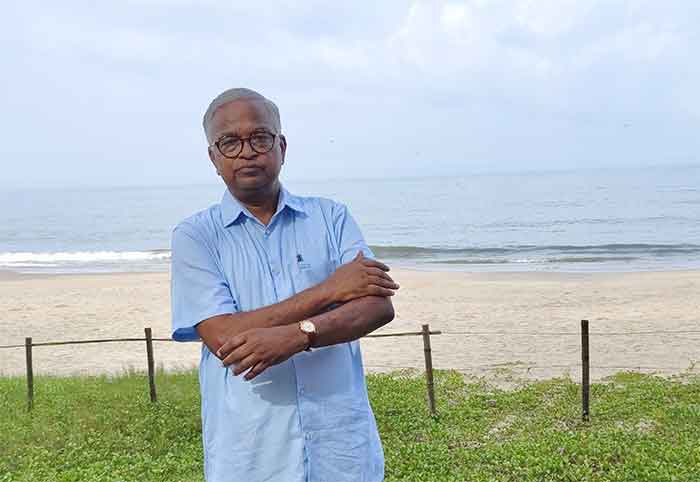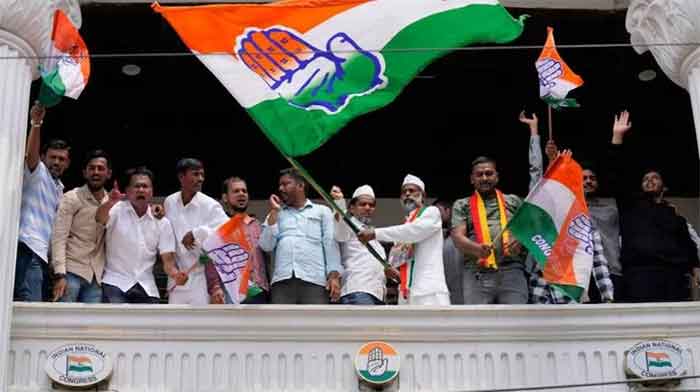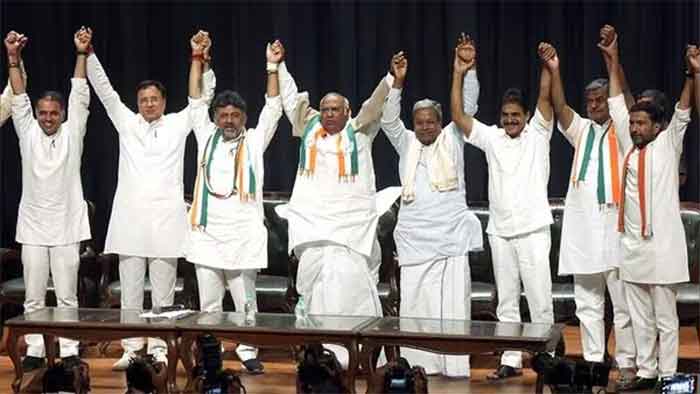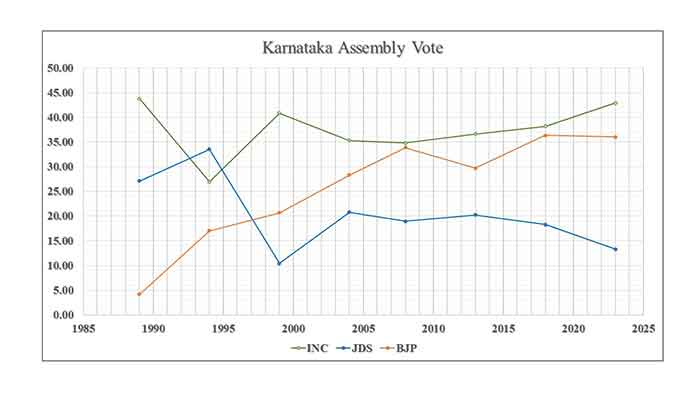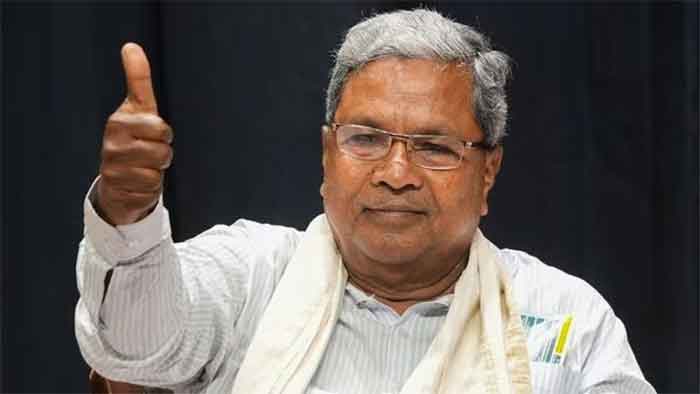
A narrative is being built from Delhi that the Congress won the Karnataka elections because of Rahul Gandhi’s Bharat Jodo Yatra.
No doubt it played a role, but without a strong mass leader at the state level no national party could win the state elections only due to a national leader. But for a strong mass leader like Siddaramaiah, who proved to be a good administrator and above petty corruption politics, with a commitment to the cause of Shudra/OBCs the Congress could not have won in 2023.
Corruption is a living power in the Karnataka state BJP leadership. Though PM Narendra Modi keeps talking against corruption his party’s Karnataka leaders proved him consistently wrong. Though D.K Shiva Kumar played a good role as KPCC president, he does not have the mass base and the clean image that Siddaramaiah has.
It is Siddharamaiah’s mature and unwavering secular leadership with massive mobilization ability that must be kept above everything. The Indian National Congress must follow the same model in every state.
Siddaramaiah became the Chief Minister of Karnataka for the second time which is good news for India as a whole. His second term, though, poses challenges of keeping the deceptive BJP in check, managing Shiva Kumar’s debasing ambitions and running the administration to the satisfaction of the people who defeated Modi, not just the local leaders.
This was an election between Siddaramaiah’s people’s welfare politics and Modi’s ‘Jai Bajrang Bali’ communal politics. Siddaramaiah’s grassroots popularity, his consistent secular democratic strategies made him a real mass leader of Karnataka. This election of Karnataka is so important to the nation as it needs to take a turn from communalism to democratic welfarism, which would have serious implications for the Hindutva ideological apparatus.
This is a state of the second-in-command sarsanchalak of the RSS, Dattatreya Hosabale. Perhaps he too wanted to retain power by all means by using all the force from Delhi. Since Hosabale, a Brahmin leader, is also a strong supporter of Modi it was the latter’s responsibility to retain that state’s power in RSS/BJP hands. It is said that Hosabale was responsible for bringing Modi as the PM candidate in 2013.
Hence Modi seemed to have used all his government’s strength, his time and energy to win Karnataka, using both the OBC card and communalism. The Karnataka BJP Government made some of its most critical anti-Muslim policies during the Bommai regime to appease Hosabale’s communal leadership in the RSS. The hijab issue, cancelling 4 per cent reservations of Kannada Muslims and banning the Popular Front of India (PFI) a Muslim organization and so on that was active in Karnataka and Kerala.
But Siddaramaiah countered all those efforts with his mass contact, with his proven administrative abilities as a Chief Minister for five years till 2018. The poor, the Shudra/OBCs/Dalits and Adivasis were virtually waiting for elections to bring him back. Of course, Muslims would be with him as he had a strong stand on the positive role of Tipu Sultan. The most active communal leader from Assam, Himanta Biswa Sharma, said in his election rally in Karnataka that Siddaramaiah must go to Pakistan and celebrate Tipu Jayanthi.
His ability to take activists along
The Congress leaders worked as a team in order to defeat the money and muscle power of the BJP/RSS and with the good will that Siddaramaiah built among the masses, won this election. He knows how to take the grassroots party activists with him, even though he does not spend money like other leaders. He is not very rich either.
His popularity could be gauged from the kind of crowds that attended his 75th birthday celebration last year. Citing the national newspapers and TV channels Wikipedia said the following about his birth day mass attendance:
“Siddaramaiah celebrated his 75th birthday on 3 August 2022 in Davanagere and called it “Siddha Ramotsava”, where more than 16 lakh followers of Siddaramaiah had attended the program”.
That shows he is a different OBC leader from Modi, with his feet firmly placed in every village agrarian and artisan community.
Even if half of that crowd came for his birthday celebration, which Rahul Gandhi also attended, it was unparalleled in Indian history, indicating a leader for whom the masses gathered to acknowledge the service he had rendered.
He has not come from an urban business, big or small, newly inducted OBC background, for the purpose of political power. He is an OBC from an historical Shudra shepherd family that was denied the right to education, state employment, human dignity from the days of writing of the Rigveda. Having realized that the OBC vote is going to decide the power at Delhi, the RSS/BJP forces have been promoting many non-Shudra leaders as OBCs. This was because of their realization after opposing the Mandal reservation that without OBC votes they cannot capture Delhi. Narendra Modi, Sushil Modi kind of BJP leaders who now use the OBC card opposed the Mandal reservation and worked as militant Kamandal movement leaders.
A Mandal movement OBC
Siddaramaiah was their nemesis. He was a strong Mandal movement leader. Having come from a shepherd family and having worked in a family of agrarian and animal economy sectors till he crossed his 10th year, he went to school and completed his school and college education and got his B.SC and LLB degrees. That was unexpected of a Kuruba boy in those days. After he completed his LL.B he entered into legal practice while working as a social activist in Mysore area. Such an unusual young Kuruba lawyer caught the eye of M.D. Nanjundaswamy, a very well-known leader of the farmers movement in the early 1980s. It was he who made Siddaramaiah contest the Assembly elections as representative of the farmer’s organization Rajya Raitha Sangha. He won and went into Assembly in 1983. He later joined the Janata Party as a pro-poor faction leader in that khichdi party and went on to win election after election and became a minister.
Later he joined Deve Gouda’s JD (S), again as a pro-poor champion and committed OBC/SC/Adivasi representative, with a hope to become the Chief Minister after Deve Gouda retired. He worked as Deputy CM in his cabinet. But Deve Gowda made his son the CM ignoring Siddaramaiah. Deve Gowda is a conservative semi-Hindutva leader and Siddaramaiah was/is a rationalist with a Shudra spiritual ideology but not an agnostic.
He then left JD(S) and formed AHINDA Party ( which means (Alpa Sankyaka, Hindulida, Dalita ). Hindulida in Kannada means ‘backward’. Actually the mainstream media saw that step of Siddaramaiah as the end of political career. But with his mass strength he came into Congress when it had no mass leader.
He entered the Congress without giving up his strong commitment to the OBC agenda, secularism and rationalism. One can see his commitment to anti-caste secularism and rationalism in all his statements after the BJP came to power in Delhi. He never compromised with saffronism. One can see his secular physical style compared to D.K Shiva Kumar, who always sports a bundle of saffron threads around his wrist and looks like a believer in superstitions.
The Congress national leaders Rahul Gandhi and Priyanka Gandhi keep going to temples worshipping Shiva (Rahul) and Hanuman (Priyanka) quite strangely. But Siddaramaiah would not do that. He would quote Basava and Akka Maghadevi as his tradition of spiritual leaders and did not run round temples.
How is he an original OBC?
Historically the Shudras, who in the present society constitute 52 per cent got divided into Other Backward Classes (OBCs) and general Shudras like Jats, Patels and Marathas, Reddys, Kammas, Nairs and so on. In Karnataka Lingayats and Vokkaligas, who are like Jats and Reddys, are upper agrarian Shudras. But they are part of the reservation. They are also known as OBCs. Siddaramaiah, having come from a Kuruba (shepherd) community lived a childhood life of sheep breeding and also, like Lingayats and Vokkaligas, lived a life of agriculture, as his family had lands and an animal economy. His relationship with meat and milk producers and also grain producers was deep and intimate. Modi who came from urban business Mod-Ganchi community tried to cast him as anti- Lingayat. But Siddaramaiah was a genuine OBC who fought for the reservation of Kannada Shudras. Lingayats and Vokkaligas know that. The poor among those castes are fully with him.
Modi knows that if the Congress won then Siddaramaiah would become the CM. He appealed to Lingayats, more particularly, not to vote for the Congress so that Siddharamaiah could not become CM. But the result shows all sections including Lingayats voted for the Congress with a belief that Siddararamaiah will do good to their state. After Devaraj Urs he has commanded the popular vote base in the state.
If the BJP, which tactically projected Modi as an OBC and won two elections in the country, needs be defeated only when the Shudra agrarian OBC leaders of the nation join hands. Siddaramaiah, Pinarayi Vijayan, M.K Stalin, K.Chandrasekhara Rao, Jaganmohan Reddy, all CMs in the South, are from Shudra agrarian and artisanal background. In North, Akhilesh Yadav, Tejaswi Yadav, Nitish Kumar, Bhupesh Bhagel, Ashok Gehlot are also from the Shudra agrarian background. If they win a majority of the parliament seats in 2024 the BJP will lose.
The Congress leadership in Delhi must realize that the BJP’s urban business OBC agenda must be countered with the historical Shudra agrarian peasant OBC agenda. Siddaramaiah’s model suits that party very well at the national level.
Once Modi as the PM has openly given a very communal slogan ‘Jai Bajrang Bali’ and given a call to go to the election booths and say “Jai Bajrang Bali and vote”, he clearly put forth his aggressive communal position on the election scene. Morally he lost a lot of ground.
This is the time for national Shudra-OBC leaders to unite and lead the nation with a positive democratic welfarism, by putting an end to communalism in the name of OBC politics. The urban communal OBC politics have no roots in agrarian productive Shudra/OBC forces.
Using agriculturist nationalism to check crony capital mobilization of non-OBC/Dalit/Adivasi forces is very important. The OBC support of crony capitalism in which they have no share, will destroy the future positive democratic capitalist path of India. Mahatma Phule, Dr.B.R Ambedkar and Periyar wanted a positive people’s democracy without involving religion in politics. Siddaramaiah represents that ideology without giving in to communal ideology at any point of time in his life.
Let the Congress intellectuals study his life and model carefully and work out a comeback strategy at the national level.
Kancha Ilaiah Shepherd is political theorist, social Activist and writer. His recent book The Shudras–Vision for a New Path Co-edited with Karthik Raja Kuruppusamy has shown a possible way out from the communal OBC morass that the RSS/BJP has deployed.

